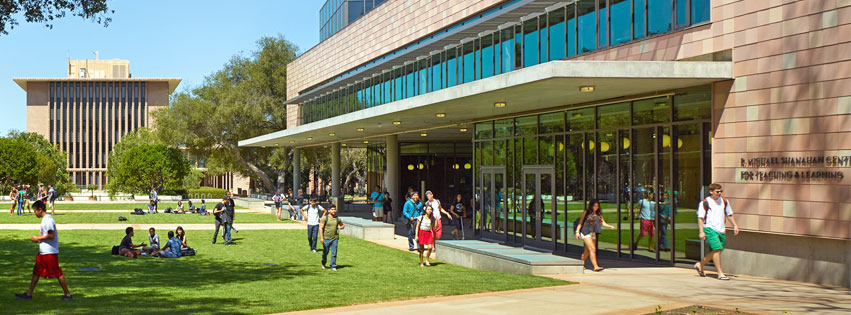Harvey Mudd Ranked No. 1 for Undergrad Engineering
September 10, 2018
Harvey Mudd College’s undergraduate engineering program is ranked No. 1 in U.S. News & World Report’s Best Colleges 2019, tied with Rose-Hulman Institute of Technology. Harvey Mudd’s ranking is among colleges that offer a bachelor’s or master’s as the top degree in engineering. The College has tied for first place four out of the past five years.
Harvey Mudd’s engineering department was also recognized in the “Best in the Specialties” section, coming in at No. 4 for electrical/electronic/communications engineering, No. 5 for civil engineering and No. 5 for computer engineering. Harvey Mudd offers a broad yet deep general engineering degree that emphasizes experiential, hands-on learning and team-based projects with real-world applications.
In the overall ranking for national liberal arts colleges, Harvey Mudd shares the No. 18 spot with Colby, U.S. Military Academy (Westpoint) and Wesleyan.
Harvey Mudd is No. 4 on the High School Counselors’ Top College Picks, sharing the slot with Amherst, Bowdoin, Swarthmore and Williams.
Harvey Mudd ranked No. 18 on the Best Undergraduate Teaching list, tied with Middlebury and Smith.
On this year’s list of Most Innovative Schools, a ranking that highlights colleges making the most innovative improvements in terms of curriculum, faculty, students, campus life, technology or facilities, Harvey Mudd shares the No. 8 spot with Amherst, Carleton and Vassar.
In the category of Campus Ethnic Diversity, an unranked list, Harvey Mudd came in near the top with a score of 0.72. Increasing diversity has been a strategic priority for Harvey Mudd; the 2015–2016 entering class was the most ethnically diverse in the College’s history, and each incoming class since has contributed to building a more diverse community. Harvey Mudd was also on the unranked list of top colleges for economic diversity, with 13 percent of students receiving Pell grants, and on the unranked list of colleges with the largest percentage of international students with 10 percent of the student body coming from other countries.
U.S. News & World Report’s 2019 rankings were based on a selection of indicators of quality, including: outcomes, which includes a new factor, social mobility, along with graduation and retention rates (35 percent, up from 30 percent in 2018); faculty resources (20 percent); expert opinion, an assessment of excellence by peers and counselors (20 percent, down from 22.5 percent in 2018); financial resources (10 percent); student excellence (10 percent, down from 12.5 percent in 2018); and alumni giving (5 percent).
